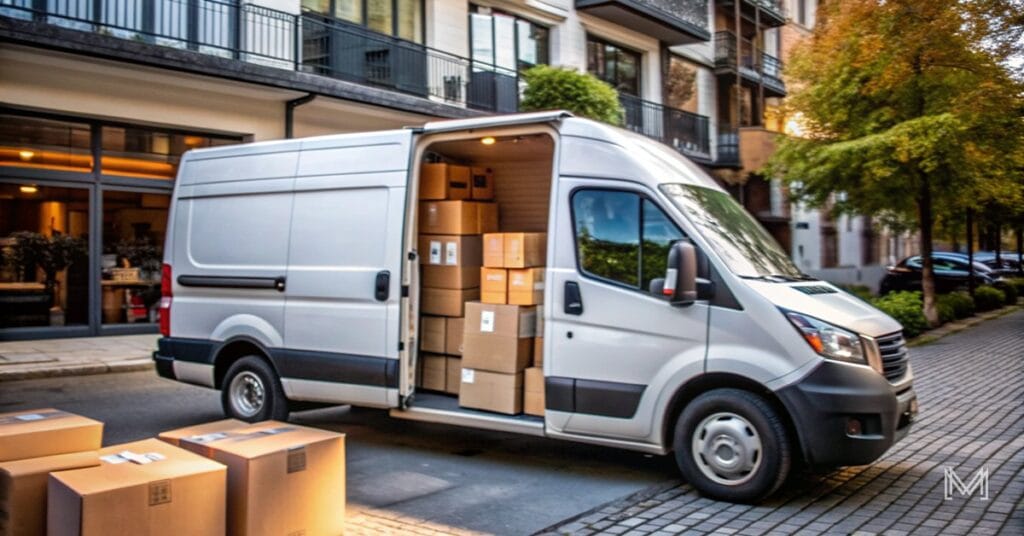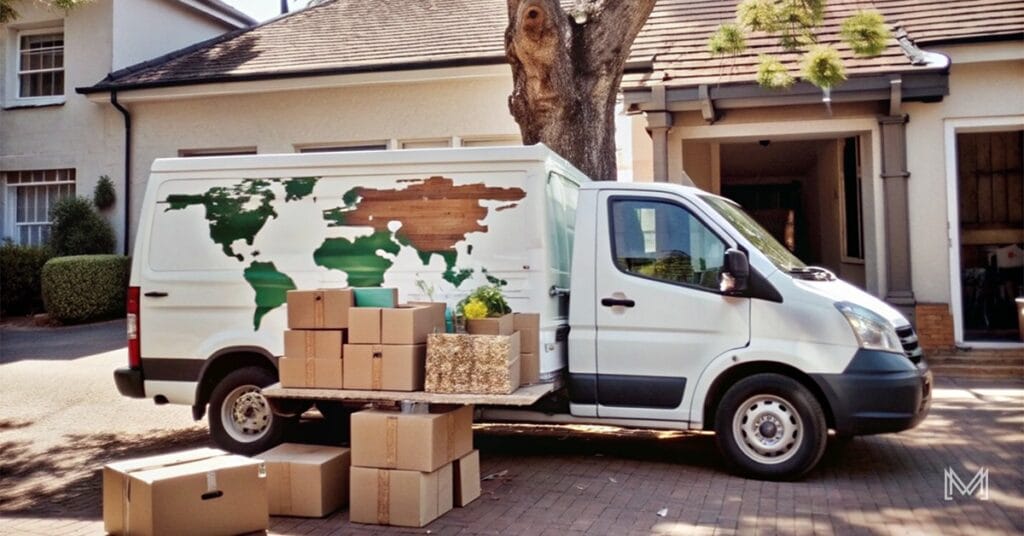Delivering Dreams: A Guide to Starting a Delivery Business in South Africa
South Africa’s bustling economy and burgeoning e-commerce landscape have created a golden opportunity for entrepreneurs looking to carve out a niche in the delivery sector. The demand for reliable, efficient, and affordable delivery services is steadily rising, making it an attractive business venture. But starting a delivery business requires more than just a vehicle and a smile. It demands careful planning, strategic execution, and a keen understanding of the market.
This comprehensive guide will walk you through the essential steps to establishing a thriving delivery business in South Africa, from securing the necessary permits and resources to attracting your first customers and navigating the complexities of the industry.
1. Assessing the Delivery Landscape:
Before diving headfirst into the delivery business, it’s crucial to understand the competitive landscape.
Understanding the Market:
- E-commerce Growth: South Africa’s online shopping scene is booming, fuelled by increased internet penetration and consumer preference for convenience.
- Emerging Delivery Models: Innovative delivery models like same-day delivery, grocery delivery, and specialised logistics are gaining traction, presenting opportunities for differentiation.
- Competition: Established players like Takealot, Mr. D Food, and Uber Eats dominate the market, but smaller, specialised delivery services are finding success by focussing on specific niches.
Identifying Your Niche:
- Specialised Delivery: Focus on a specific sector like healthcare deliveries, food delivery, or document delivery.
- Geographical Focus: Target a particular area or city to establish a strong local presence.
- Value-Added Services: Offer unique services like same-day delivery, tracking, or personalised delivery options to attract customers.

2. Building Your Delivery Business Foundation:
Registration and Legal Requirements:
- CIPC Registration: Registering your business with the Companies and Intellectual Property Commission (CIPC) is essential for legal legitimacy and tax compliance. The registration process is relatively simple and affordable, costing around R125.
- Tax Compliance: Obtain a Tax Clearance Certificate (TCC) from the South African Revenue Service (SARS) to operate legally and avoid penalties.
- Business Bank Account: Opening a dedicated business bank account helps streamline finances, track income and expenses, and maintain financial transparency.
- Business Insurance: Secure comprehensive insurance for your vehicles, cargo, and liability, protecting you from potential accidents, damage, or claims.
3. Equipping Your Delivery Fleet: Starting a Delivery Business
Choosing the Right Vehicle:
- Cargo Van: Ideal for larger deliveries, offering ample storage space and a professional appearance.
- Motorbike: cost-effective for smaller deliveries and navigating traffic-congested areas.
- Scooter: Suitable for quick and agile deliveries within city centres, especially for food delivery services.
Essential Equipment:
- Smartphone: for navigation, communication, and tracking deliveries.
- GPS ensures accurate and efficient route planning.
- Clipboards and pens: for recording delivery details and customer information.
- Hand Truck: Useful for loading and unloading heavy items.
- Thermal bags are essential for food delivery services to maintain food quality and hygiene.
4. Securing Clients and Building a Delivery Network:
| Leveraging Existing Platforms | Direct marketing and networking |
|---|---|
| Takealot: Partnering with established online retailers like Takealot offers immediate access to a large customer base and consistent delivery volume. | Website and Online Presence: Create a professional website showcasing your services, pricing, and contact information. |
| Uber Eats, Mr. D Food, and Other Delivery Platforms: Joining these platforms allows you to reach a broad audience and tap into their existing customer network. | Social Media Marketing: Utilise social media platforms to reach potential customers, promote your services, and build brand awareness. |
| Local Businesses: Approach local restaurants, stores, and businesses to offer your delivery services, showcasing your reliability and competitive pricing. | Local Networking Events: Attend industry events and network with businesses and individuals in the delivery and logistics sectors. |
5. Mastering Delivery Operations and Customer Service:
Route Optimisation and Time Management:
- GPS Navigation: Utilise GPS technology to optimise routes, minimise travel time, and increase delivery efficiency.
- Delivery Tracking: Implement tracking systems to provide customers with real-time updates on the status of their deliveries.
- Customer Communication: Maintain clear and regular communication with customers, addressing concerns promptly and professionally.
Ensuring customer satisfaction:
- Professionalism: Maintain a professional demeanour and appearance, representing your business with integrity.
- On-Time Deliveries: Adhere to promised delivery times, minimising delays and ensuring customer satisfaction.
- Damage Prevention: Take extra care to handle packages with care and prevent damage during transit.
- Customer Feedback: Actively solicit customer feedback to identify areas for improvement and enhance the overall delivery experience.

6. Scaling Your Delivery Business for Success:
Expanding Your Delivery Fleet:
- As your business grows, consider expanding your fleet to accommodate increased delivery volume and service a wider geographical area.
- Vehicle Maintenance: Implement a regular maintenance schedule for your vehicles, ensuring they are roadworthy and reliable.
Managing Finances and Growth:
- Financial Planning: Develop a solid financial plan, tracking income and expenses and forecasting future growth.
- Profitability Analysis: Regularly analyse your business profitability, identifying cost-saving opportunities and pricing strategies.
- Investment in Technology: Invest in technology solutions like delivery management software, GPS tracking, and customer communication tools to streamline operations and enhance efficiency.
7. Staying Ahead in the Delivery Game:
| Embracing Technological Advancements | Adapting to Market Trends |
|---|---|
| Delivery Robots: Consider integrating automated delivery solutions, especially for specific routes or high-volume deliveries. | Sustainable Delivery: Embrace eco-friendly practices like electric vehicles, bike deliveries, and sustainable packaging. |
| Drone Delivery: As regulations evolve, explore the potential of drone technology for faster and more efficient deliveries. | Personalised Delivery: Offer customised delivery options to cater to specific customer needs, such as time-slot deliveries, white-glove services, or special delivery instructions. |
| Artificial Intelligence (AI): Utilise AI for route optimisation, demand forecasting, and customer service automation. | Focus on Customer Experience: Continuously innovate and improve the customer experience, providing seamless communication, transparent tracking, and exceptional customer support. |

8. Embracing the Future of Delivery in South Africa:
The South African delivery industry is poised for exponential growth, driven by the increasing popularity of online shopping, urbanisation, and changing consumer preferences.
Key Trends to Watch:
- Last-Mile Delivery: The final leg of the delivery journey will continue to be a key focus for innovation and optimisation.
- Hyper-Local Delivery: Smaller, local delivery services will continue to thrive, catering to specific neighbourhoods and communities.
- Delivery as a Service: Expect to see more delivery-as-a-service models where businesses can seamlessly integrate delivery services into their operations.
- Sustainability and Green Logistics: Environmental consciousness will drive a shift towards sustainable delivery practices.
Navigating the Challenges:
- Competition: The delivery industry is increasingly competitive, requiring continuous innovation and differentiation.
- Traffic Congestion: Managing deliveries in congested urban areas is a key challenge.
- Fuel Costs: Fluctuations in fuel prices can significantly impact profitability.
- Security and Safety: Ensuring the safety of delivery drivers and cargo is paramount.
Conclusion: Starting a Delivery Business
Starting a delivery business in South Africa is a challenging but rewarding venture. By understanding the market, securing the necessary resources, building a strong brand, and staying ahead of industry trends, you can establish a successful delivery business that meets the growing needs of South African consumers. Embrace the challenges, capitalise on the opportunities, and deliver dreams with dedication, reliability, and a customer-centric approach.

Frequently Asked Questions about Starting a Delivery Business in South Africa
What are the essential legal requirements for starting a delivery business in South Africa?
To operate legally, you need to register your business with the Companies and Intellectual Property Commission (CIPC), obtain a Tax Clearance Certificate from SARS, open a dedicated business bank account, and secure comprehensive insurance for your vehicles, cargo, and liability.
What type of vehicle is best for starting a delivery business?
The ideal vehicle depends on your niche and delivery needs. Cargo vans are suitable for large deliveries, motorbikes are cost-effective for smaller deliveries in traffic, and scooters are agile for quick city deliveries. You need to consider your budget, delivery volume, and the areas you will be operating in.
How can I attract clients for my delivery business?
You can attract clients by partnering with platforms like Takealot and Uber Eats, reaching out to local businesses, creating a professional website and online presence, leveraging social media marketing, and attending industry events to network.
What are the key challenges to starting a delivery business in South Africa?
The main challenges include intense competition, traffic congestion, fluctuating fuel costs, security concerns, and the need for continuous innovation to stay ahead.
What are some future trends in the delivery industry that I should be aware of?
Key trends include last-mile delivery optimisation, hyper-local services, delivery as a service models, and a focus on sustainability and green logistics. You should embrace technological advancements like delivery robots, drone technology, and AI to stay competitive.


